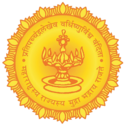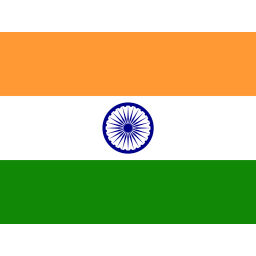Address by Governor at the Occasion of the Sixth Convocation of The Institute of Chemical Technology, Mumbai
Address by Shri Ch Vidyasagar Rao, Governor of Maharashtra and Tamil Nadu on the Occasion of the Sixth Convocation of The Institute of Chemical Technology, Mumbai at 4 pm on 8th February, 2017
Padma Vibhushan Dr R.A. Mashelkar, Chancellor of the Institute of Chemical Technology, Padmashree Professor G D Yadav, Vice Chancellor, Professor Jean-Marie Lehn, Nobel Laureate, Professor Robert H. Grubbs, Nobel Laureate, Professor P.R. Vavia, Dean Academic Programmes, Professor Rekha Singhal, Dean Research, Professor Smita Lele, Registrar, Professor R.R. Deshmukh, Controller of Examinations, Members of Board of Management, Academic Council, Heads of Various Departments, Graduating students and their parents, members of media, invited guests, students, ladies and gentlemen,
Good afternoon and greetings to each one of you.
I am indeed very happy to be visiting this great Institute of Chemical Technology and to share the joy of the graduating students on this day.
Today I was very doubtful whether I would be able to attend this Convocation. Perhaps you are aware that I am holding additional charge as Governor of Tamil Nadu. A lot of political developments is taking place in that State. The moment you put on the TV set, you see political action and noisy debates. Sometimes there are questions, where is the Governor. I am happy that I am here, in the midst of all of you !
At the outset I congratulate all the graduating students who have completed their degree programmes and who have become proud alumni of this world renowned Institute of Chemical Technology.
This is indeed a momentous occasion in the history of the Institute. Two Nobel Laureates are being presented with honorary doctorates. I applaud both of them for their outstanding work and congratulate them for accepting the honorary degree from ICT.
Ladies and gentlemen,
Even though it is two and a half years since I took charge as the Governor of Maharashtra, this is my first visit to the Institute of Chemical Technology.
As Chancellor of 20 universities in the State, I have visited most of the Universities in the State. Somehow, I had never visited this University. However, having read about it, I was always eager to visit the institution.
The Institute of Chemical Technology, a Deemed University of Maharashtra, was placed at Number 2 position among all Indian leading Universities by the Ministry of Human Resource Development- NIRF in April 2016. Further, it was ranked Number One among premier universities, Indian Institute of Science, Bengaluru and all Indian Institutes of Technology based on the criterion of Normalized Citation Impact Index by the international agency, Web of Science, in September 2016.
It is a matter of immense pride that the institution enjoys a global standing of number 4 among all Chemical Engineering programmes. I extend my heartiest congratulations to the Vice Chancellor, the Deans, members of faculty, students, alumni and support staff for this great achievement. I also congratulate the very eminent science leader and Chancellor of this institution Dr R A Mashelkar for guiding the destiny of the institute.
The Institute of Chemical Technology was once a Department of the University of Mumbai. It was then known as UDCT or the University Department of Chemical Technology. The Institution is a classic example of how autonomy could be used to transform our centres of excellence.
Over the years, the ICT has produced 19 Padma awardees- 3 Padma Vibhushans, 8 Padma Bhushan and 8 Padma Shri; 2 Fellows of Royal Society, and over 500 first generation industrialists and owners of fortune 500 companies.
This institution and its alumni exemplify the spirit of ‘The Make in India Mission’ and the vision of the Hon’ble Prime Minister of India.
Recognizing the important work of ICT, the Government of Maharashtra has taken a decision to allot 200 acres of land to ICT for building a satellite campus in Marathwada near Aurangabad-Jalna.
I am sure, some of the ICT’s proposed Centres of Excellence in waste management, pharmaceuticals, food processing, materials and energy will promote industrial growth in the region.
The number of Ph. Ds produced by India in higher and professional education is significantly low compared to China. I do feel that we must have a comprehensive plan to achieve substantially higher numbers of Ph Ds across all streams in the country.
In this connection, I am happy to know that about 700 Ph Ds and 450 masters students of ICT are conducting cutting-edge research on this small piece of land. ICT is an example of how things must be done.
This institute has always prioritized relevance in the design of its curricula. The syllabus to create entrepreneurs and startup companies adopted by ICT is excellent.
The first degrees awarded by the Institute of Chemical Technology were in professional disciplines. Its strong focus on relevance has ensured that the institute has kept with the times. Numerous companies were started by ICT graduates and many were started on these premises.
We are only recently talking of incubation centres. Such incubation centres were already part of ICT’s culture for over 8 decades !
The Institute of Chemical Technology is truly an egalitarian institute that respects one’s body of work and not the person. Sons and daughters of India’s richest industrial dynasties have shared benches with student from the remotest villages in India. Rich or poor, everyone has a tricky time negotiating ICT examinations in their subjects. It speaks of the inclusive character of ICT.
The culture of quality and success that permeates this hallowed campus resonates in the students who pass through these portals. Some of this institute’s most famous alumni had no business background, but they have created industrial and intellectual empires that are beyond anybody’s imagination.
Indeed, this place is entrepreneurial in its dealings, which is why I reserve my special praise for the entrepreneurs who have emerged from this institute. They have imbibed concepts and converted those into reality. They have become champions of new processes and have become engines of change. Entrepreneurs need a keen eye to understand economic, social, and scientific realities and the capacity to understand evolutionary processes in the future.
The Government of India has launched many ambitious missions – be they Swachh Bharat, Swastha Bharat, Namami Gange, Make in India, Smart Cities, Skill Development, Startup India, Standup India, Digital India, etc.
The role of your University in these missions is going to be crucial since you have been working on solving problems of societal importance – energy, environment, clean water, solar energy, affordable healthcare, food and the like. I am also aware of your institute’s efforts in cleaning the Rankala Lake in Kolhapur using CSR funds.
Waste Management is a huge problem for India and for the world as well. ICT’s research and innovation are greatly related to it. Incidentally Dr Mashelkar is the Chairman of the Expert Panel of Swachch Bharat Abhiyan and Prof Yadav is the Chairman of the Expert Panel of Waste Management Programme of DST.
Ladies and gentlemen,
India has already emerged as the youngest nation in the world. By 2020, the average age of an Indian will be 29 years, which is 8 years younger than the average age of a Chinese or an American. But demography is a double – edged weapon. It is necessary that we provide the best of education and skills to the youths to make them stakeholders and partners in the nation’s progress and development. If we fail to do so, the demographic dividend would become a demographic disaster. We need the power of science, technology and innovation to overcome the problems faced by the nation such as poverty, hunger, disease and unemployment.
As Chancellor of Universities in the State, I have one expectation from ICT. ICT should offer mentorship to some of the Universities and departments in Maharashtra to further improve their standards and transform them into Centres of State Excellence. I wish to see a regular interface between the Universities in Maharashtra and ICT.
The College of Engineering Pune had worked out mentorship arrangement with IIT, Bombay and it helped in bringing about the transformation of the College of Engineering, Pune.
I am sure, close collaboration between traditional universities with ICT will help these universities immensely.
Indian universities should aim to emulate universities in the United States and transform themselves into “magnets for creative businesses”. America’s universities have played a seminal role in fueling its economy. The Silicon Valley and the biotechnology hubs in Massachusetts and California all owe their establishment and success to university-based research programs.
With Asia’s growing contribution to the global chemical industry, India emerges as one of the focus destinations for chemical companies worldwide. With the current size of approximately $108 billion, the Indian chemical industry accounts for 3% of the global chemical industry. With current initiatives of industry & government, the Indian chemical industry could grow at 11% per annum to reach the size of $224 billion by 2017. Greater investments in manufacturing in the chemical sector are absolutely essential to ensure the growth of the Indian chemical industry.
The State is engaged in invigorating higher and technical education. It must be done with help of all stake holders. There is a need to remodel engineering education with industrial practice of 6 months to a year. Industries must pay handsomely to such interns. Industry should create faculty positions where State also gives some seed money. Such arrangements could synergize research competencies of corporations and provide universities with funds to operate strong graduate programs.
The State of Maharashtra is proud of this jewel ICT; the only of its kind. Let us all ensure that ICT remains a great institute.
To conclude, let me once again congratulate all the graduating students and wish them success in their future academic pursuits, research and profession. I assure ICT, that the State of Maharashtra will continue to support the Institute and all its programmes. Thank you.
Jai Hind, Jai Maharashtra.



